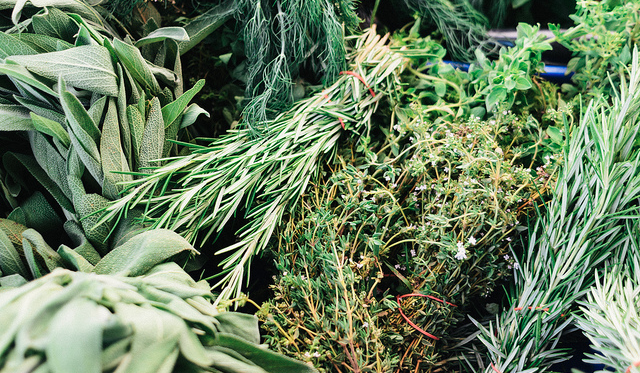Testing Reveals Weeds And Rice Fillers Where The Herbs Should Be In Herbal Supplements
Canadian researchers picked a few popular medicinal herbs and then went out and bought different brands of each kind from stores in Canada and the United States, reports the New York Times. They then used DNA barcoding to figure out what was in each kind, and the findings were a bit startling.
For example: While millions of consumers take echinacea supplements to ward off and treat colds, the researchers found the pills actually contained “ground up bitter weed, Parthenium hysterophorus, an invasive plant found in India and Australia that has been linked to rashes, nausea and flatulence.”
Then there’s St. John’s wort, used to treat mild depression. Two bottles tested by researchers didn’t have any of the herb in, just Alexandrian senna, an Egyptian shrub used as a powerful laxative. Gingko biloba? Some of those bottles were mixed with fillers and black walnut, which could be fatal for people with nut allergies.
A full third of the 44 supplements tested had straight up replaced ingredients with something else and contained none of the advertised herb. Others were simply sprinkled here and there with ingredients that aren’t on the label but were used as fillers. Again, that could be bad for anyone with allergies to soy, wheat or rice.
It brings up a big trust issue for customers: How can we rely on any of these products to do what they say they will, when they’re not even using the right ingredients?
“This suggests that the problems are widespread and that quality control for many companies, whether through ignorance, incompetence or dishonesty, is unacceptable,” David Schardt, a senior nutritionist at the Center for Science in the Public Interest tells the New York Times. “Given these results, it’s hard to recommend any herbal supplements to consumers.”
But there are those in the supplement industry warning that even though mislabeled supplements are something to worry about, the study’s use of DNA bar-coding technology was flawed and might not have identified herbs that have been purified.
“Over all, I would agree that quality control is an issue in the herbal industry,” the chief science officer at the American Botanical Council, a nonprofit group that promotes the use of herbal supplements says. “But I think that what’s represented here is overblown. I don’t think it’s as bad as it looks according to this study.”
Changing the supplement industry probably won’t be easy, as the Food and Drug Administration only requires companies to test their products to make sure they’re safe, but they’re generally treated as such until proven otherwise.
In other words, a product will come off the shelf only if there’s a serious injury reported. That needs to change, say some in the industry.
“The regulations are very appropriate and rigorous,” said a representative for the Council for Responsible Nutrition, a supplement industry trade group. “But we need a strong regulator enforcing the full force of the law. F.D.A. resources are limited, and therefore enforcement has not historically been as rigorous as it could be.”
Herbal Supplements Are Often Not What They Seem [New York Times]
Want more consumer news? Visit our parent organization, Consumer Reports, for the latest on scams, recalls, and other consumer issues.


